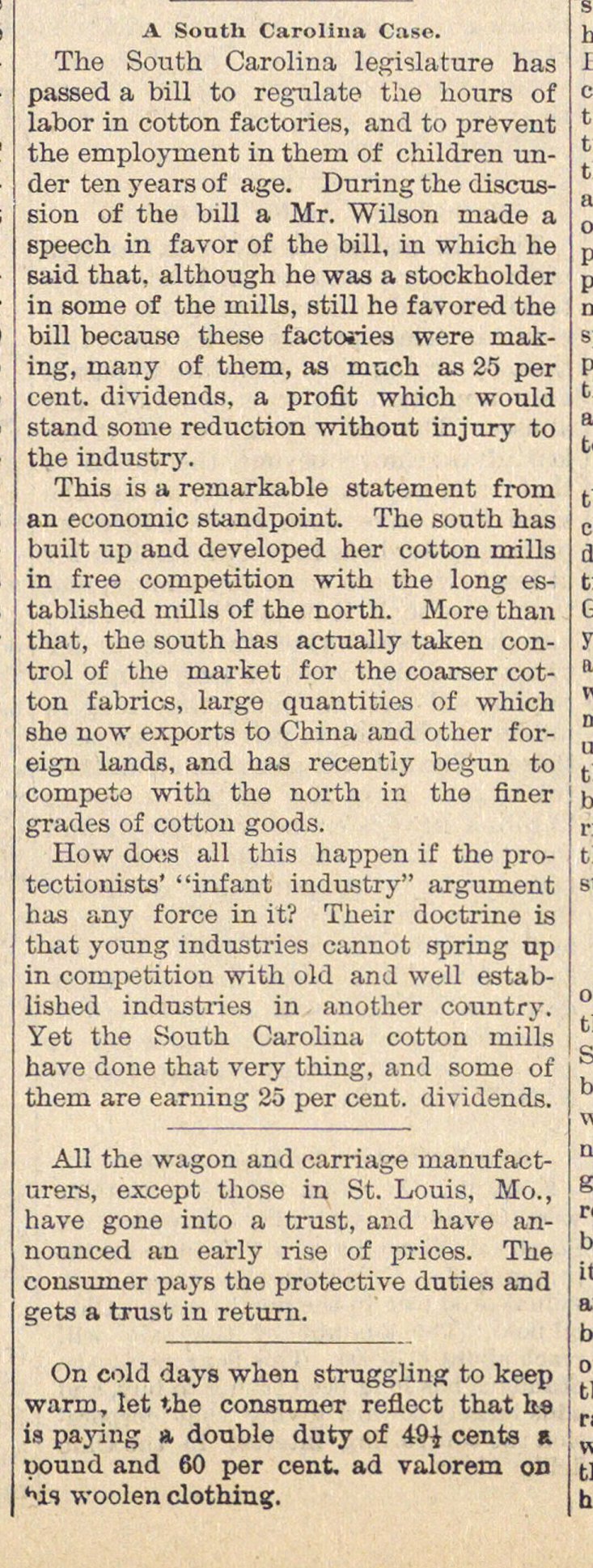A South Carolina Case

The South Carolina legislatura has passed a bilí to regúlate tlie hours of labor in cotton faetones, and to prevent the employinent in them of children under ten years of age. During the discussion of the bilí a Mr. Wilson made a speech in favor of the bill, in which he said that, although he was a stockholder in 8ome of the milis, still he favored the bill becauso these factories were making, rnany of them, as much as 25 per cent. dividends, a profit which would stand some reduction without injury to the industry. This is a remarkable statement from an economie standpoint. The south has built up and developed her cotton milis in free competition with the long established milis of the north. More than that, the south has actually taken control of the market f or the coarser cotton fabrics, large quantities of which she now exports to China and other foreign lands, and has recentiy begun to competo with the north in the finer grades of cotton goods. How does all this happen if the protectionists' "infant industry" argument has any forcé in it? Their doctrine is that yonng industries cannot spring tip in competition with old and well established industries in another country. Yet the South Carolina cotton milis have done that very thing, and some of them are earning 25 per cent. dividends. All the wagon and carriage manufacturera, except those in St. Louis, Mo., have gone into a trust, and have announced an early rise of prices. The consuiner pays the protective duties and gets a trust in return. On cold days when struggling to keep warm, let the consumer reflect that lie is paying a doublé duty of 49$ cents a uound and 60 per cent. ad valorem on is woolen clothing.
Article
Subjects
Cotton Manufacturing
Child Labor
Old News
Ann Arbor Argus
South Carolina